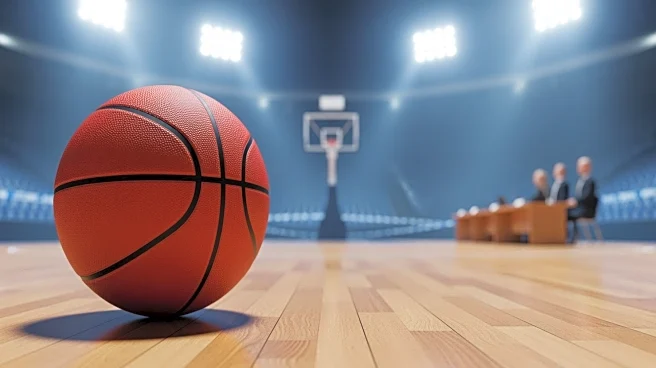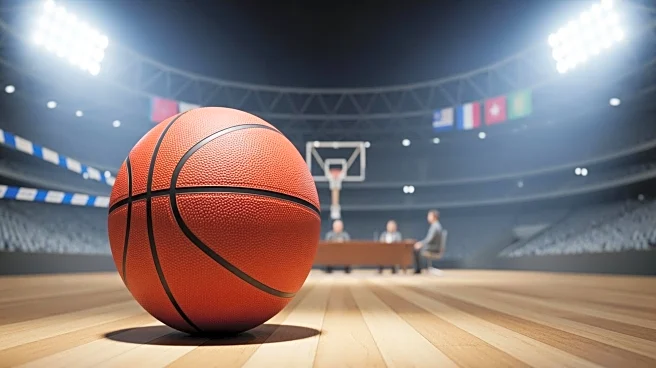What's Happening?
The NFL community is mourning the loss of Dallas Cowboys defensive end Marshawn Kneeland, who was found dead in a Dallas suburb from an apparent suicide. Kneeland's death has brought renewed attention
to the importance of mental health resources for NFL players. The league has been working to reduce the stigma surrounding mental health issues, encouraging players to prioritize their mental well-being and seek professional support when needed. The NFL and NFL Players Association have mandated that each team have a licensed behavioral health clinician on staff. Initiatives like the Indianapolis Colts' 'Kicking The Stigma' aim to raise awareness about mental health disorders, with many players openly discussing their struggles to promote mental wellness.
Why It's Important?
Kneeland's death underscores the critical need for mental health support within the NFL, a league where players often face intense pressure and scrutiny. The tragedy highlights the real-life challenges players encounter beyond the field, emphasizing the importance of mental health initiatives. The NFL's efforts to provide resources and support are crucial in helping players navigate these challenges. The loss of Kneeland serves as a reminder of the ongoing need to address mental health issues and support those struggling with them. The league's focus on mental wellness is vital for the well-being of its players, who may face unique stressors related to their careers.
What's Next?
The NFL is likely to continue expanding its mental health resources and initiatives, aiming to provide comprehensive support for players. The league may also increase efforts to raise awareness and reduce stigma around mental health issues. Stakeholders, including team owners, players, and mental health professionals, may collaborate to enhance existing programs and develop new strategies to support player well-being. The tragedy may prompt further discussions on how to effectively address mental health challenges within the league and ensure players have access to necessary resources.
Beyond the Headlines
Kneeland's death may lead to broader conversations about mental health in professional sports, highlighting the need for systemic changes to support athletes. The event could influence other sports leagues to evaluate and improve their mental health resources, recognizing the importance of addressing mental wellness in high-pressure environments. The cultural shift towards prioritizing mental health in sports may continue to grow, encouraging athletes to speak openly about their experiences and seek help when needed.









